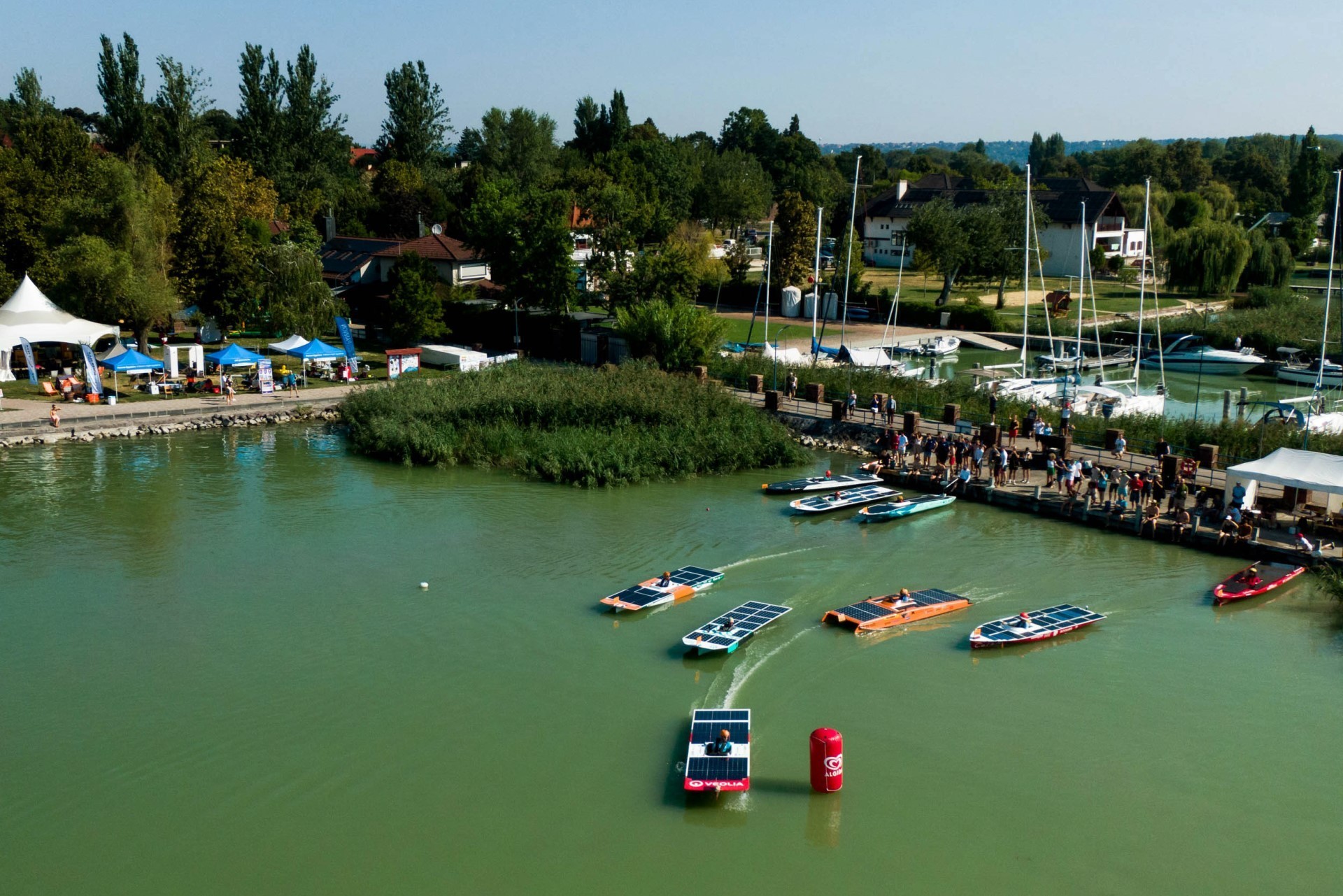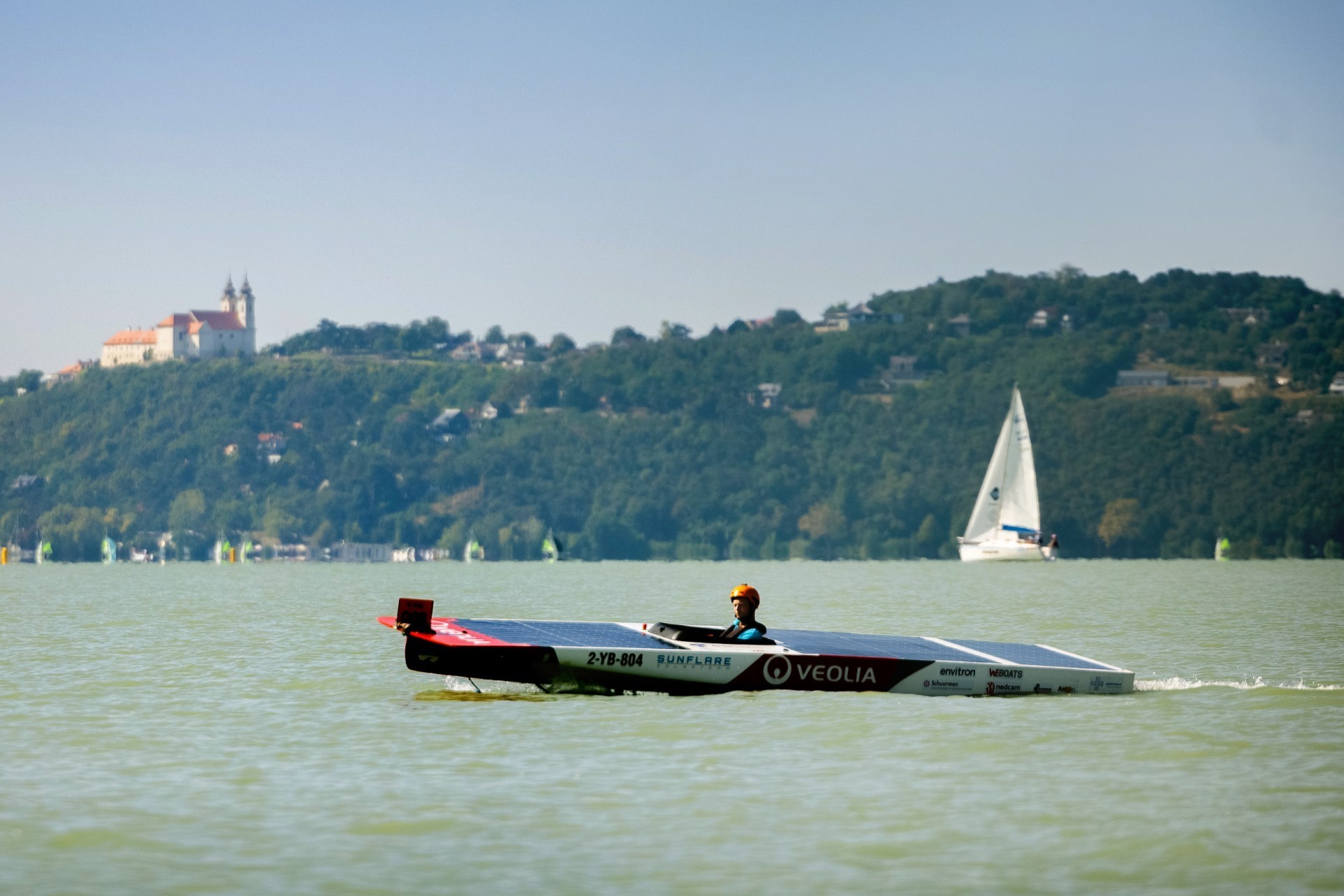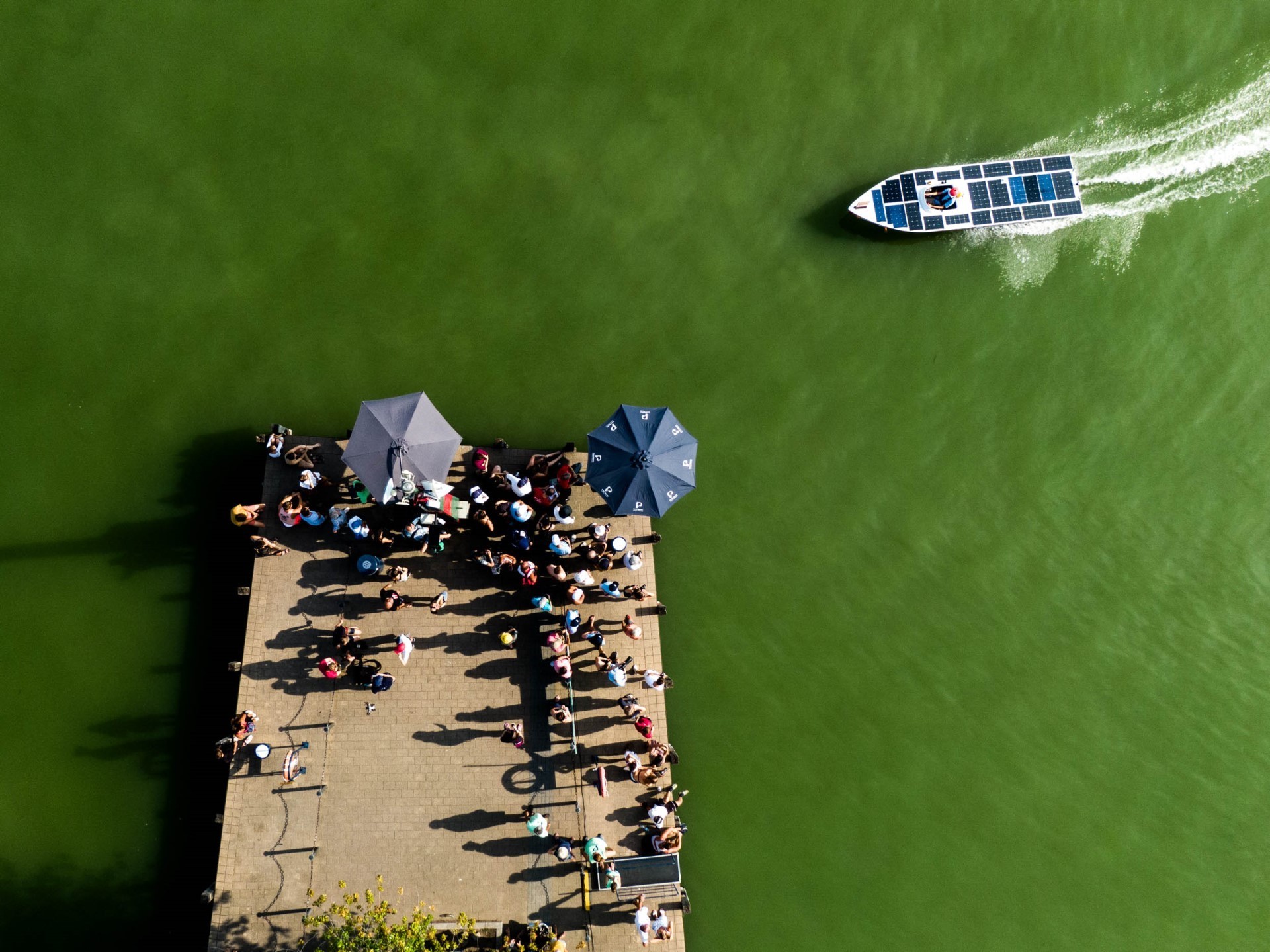Hallgatói portál
- fas fa-search
- Accessibility
Hallgatói portál

After the Netherlands and Monaco, and before the races in Germany and Sardinia in September, the spectacular technical event was hosted on Lake Balaton, which the drivers admit is one of their favourite locations.
With sustainability at the heart of the engineering competition, teams will each compete in a range of different types of solar-powered boats of their own design, including slalom, speed and endurance races to see who has made the best use of their resources. Teams must therefore balance battery capacity and boat performance while maintaining team spirit.


Sparky and the University of Pannonia Solar Boat Team, who were given a design for this year's competition that really suits the Balaton, finished the three-day competition in 8th place, satisfied and without any major technical problems, only one point behind the other Hungarian institution, the Technical University of Budapest. And of course, they already know exactly what needs to be improved on the boat for next year's competition.
The leader of the Pannon Solar Boat Team added, the boat performed reliably and well, completing all the races, so he is very proud of the team and the boat.
As for further improvements, he pointed out that one of the main goals is to make Sparky wingless, where there is a lot to be gained in terms of energy efficiency. The dedicated main sponsor, CoreComm, has donated a new set of solar panels to the team, which will be installed on board this autumn, also resulting in a significant percentage increase in efficiency. And speaking of the future, the budget is still to be discussed, but in 2025 the Pannon Team would like to participate in races in the Netherlands, Italy and Germany.
Gergely Halász, a student at the Faculty of Engineering, was the pilot for the long-distance races and Gyula Máté Tamás for the short-distance races. They both think that the team did very well. Last year the biggest problem was the drive, which was helped a lot by the redesign. Although there is still some work to be done to make the boat not so heavy, the replacement of the propulsion and solar panels and the optimisation of the performance should improve their position in next year's series.
The motivation is there: the Dutch, who are already professionals in solar-powered boat racing, have a lot to learn from the Dutch, as the boats in the first half of the field can at least double the range and speed of the boats in the second half of the field.
The event was not just on the water this time either, with free ice-cream, sustainability games and a bouncy castle at St Elisabeth's Island, courtesy of Algida, showcasing the offerings of the University of Pannonia and its partners to the visiting guests and tourists. Continental's factory in Veszprém hosted an exciting workshop full of challenges for the international engineering student team.